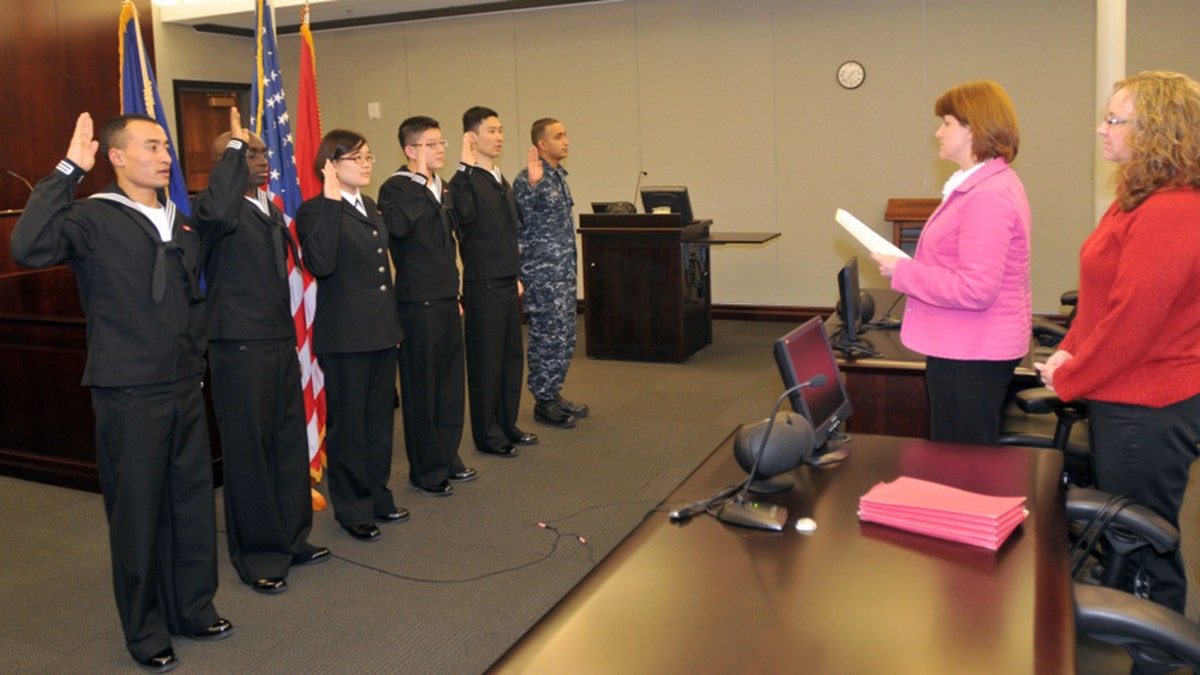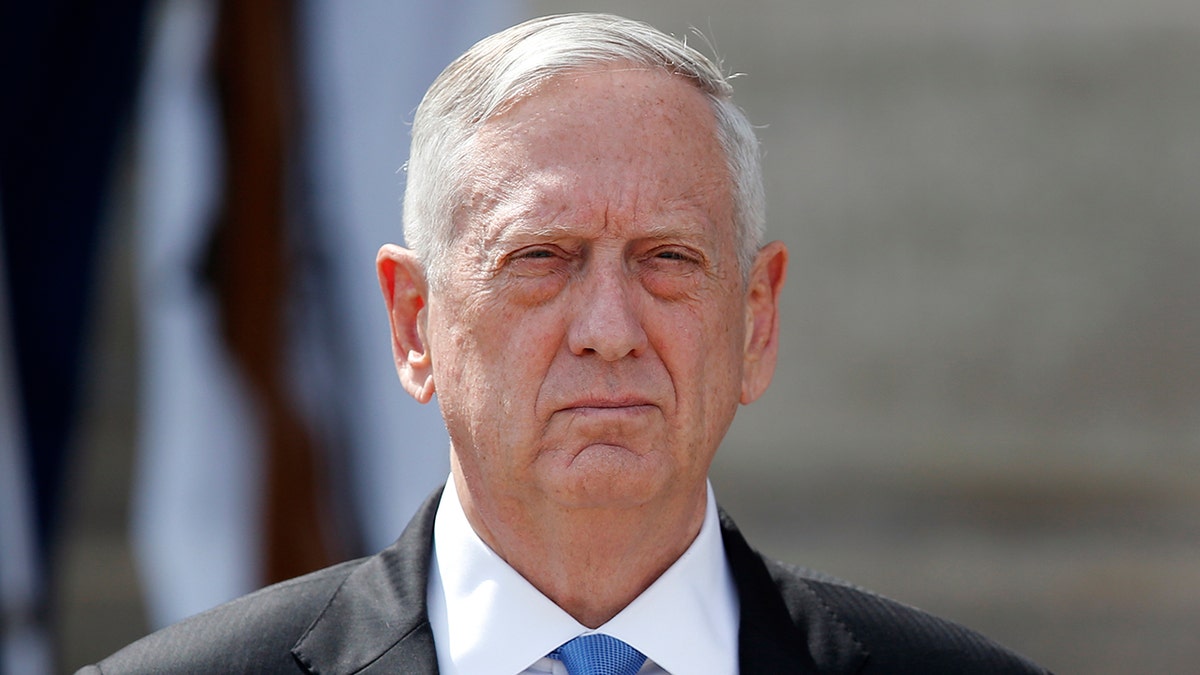
The first Navy Sailors to participate in the Secretary of Defense's Military Accessions Vital to National Interest pilot program are issued the oath of citizenship by Stacey Summers, branch chief from the U.S. Citizenship and Immigration Services Chicago field office in 2010. (Scottt Thornbloom/Department of Defense)
Defense Secretary Jim Mattis is revamping a program that puts foreign-born recruits on a fast-track to U.S. citizenship in exchange for military service as doctors, nurses and language experts.
Mattis made the announcement Friday in regard to the Military Accessions Vital to the National Interest, or MAVNI, program, which was halted last year when the Pentagon assessed it did not have proper safeguards in place against potential insider threats, the Military Times reported.
“We are taking the steps obviously to save the program, if it can be saved,” Mattis told reporters Friday. “If it can, you do due diligence for it to make sure what you are bringing in is what you think you are bringing in.”
Since 2009, more than 10,000 recruits have entered the military through the MAVNI program, the paper reported.
Supporters of the MAVNI program says it allows the military to recruit legal immigrants with vital skills such as foreign language proficiency, the Times reported. Critics said the program lacked adequate screening that left the military vulnerable.

Defense Secretary Jim Mattis waits to greet Polish Defense Minister Antoni Macierewicz, upon his arrival at the Pentagon, Thursday, Sept. 21, 2017. (AP Photo/Alex Brandon)
“We could not continue what we’d been doing without an espionage potential,” Mattis said, according to the paper.
Defense Department investigators discovered “potential security risks” in the MAVNI program after a year-long investigation, Fox News reported exclusively in August.
Sources told Fox News that MAVNI’s problems included a vetting backlog that led to enrollment of many soldiers prior to completion of their background checks, and an attendant “drift” in the program’s criteria, with MAVNI being used as a vehicle for the hiring of workers – like cooks, drivers and mechanics – who did not possess the specialized skills the program was created to exploit.
Effective immediately, recruits will have to complete the background check before being shipped to basic training.
Mattis’ announcement is the first clear sign the Pentagon has backed away from internal recommendations to kill the MAVNI program and scuttle the contracts of those waiting to serve, The Washington Post reported.
A June memo said about 1,000 foreign-born recruits waiting to receive orders risked being deported if the program was canceled, according to the paper.





















